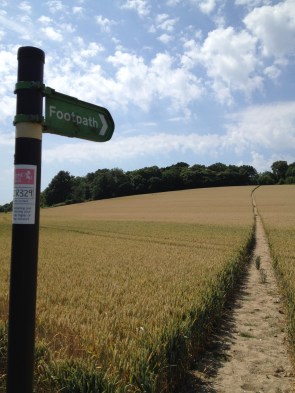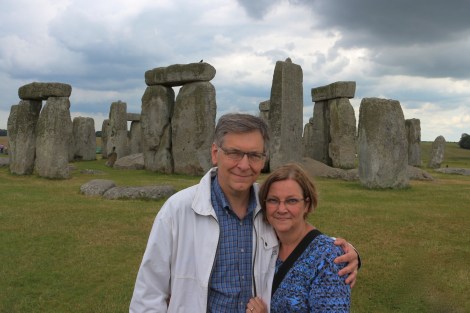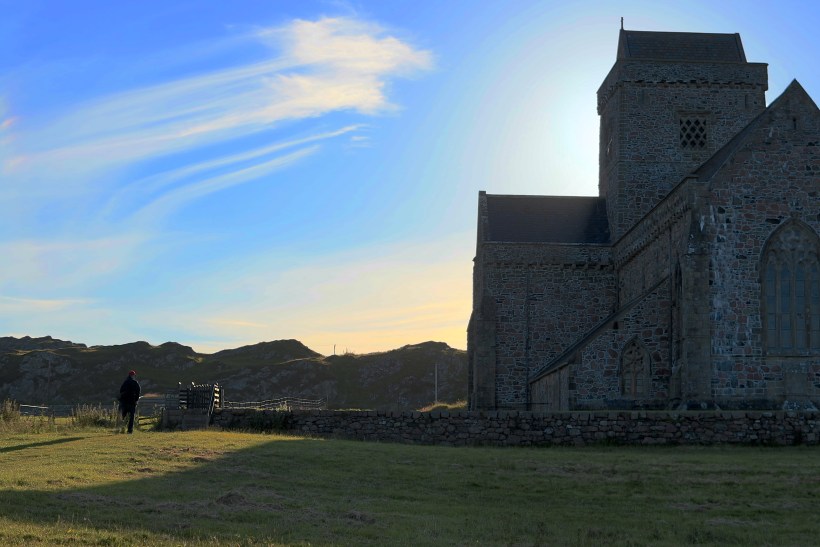The death of Robin Williams hit me hard.
While on sabbatical, Bambi and I have sought to insulate ourselves from the bad news that is a staple of the modern diet. Given spotty internet connections and unfamiliar TV channels, our ability to stay abreast of world developments–not to mention our motivation–have been at an all-time low.
To be sure, some tragic news has pierced our zone of blissful ignorance: the senseless bloodshed in Palestine, the embattled refugees in the mountains of Iraq, a terribly frightening Ebola epidemic. Hearing about these distressing developments, I’ve shaken my head in disbelief, winced with sadness, and said my prayers.
But the death of Robin William hit me like a punch in the stomach. It felt like a personal loss. How could the comedian who brought me and millions more so much side-splitting laughter suddenly be gone? And gone like this.
It is a poignant reminder that no matter what sort of happy face people wear to work, or to church, or even to the breakfast table, many are living in a private hell they try to keep hidden. And sometimes, they fail.
And now, to add insult to injury, there is chatter on Facebook and other social media by supposed Christians pronouncing some version of “Robin Williams went to hell because he committed the unpardonable sin.”
It baffles me why, in the name of God, some feel at liberty to pronounce eternal judgement in the face of another’s misstep, miscalculation, or tragic mistake. If there is one thing the Bible is emphatic about, it is that God alone is in a position to judge others (Matthew 7:1, Romans 14:10-13, 1 Corinthians 4:5 for starters).
In my pastoral experience with suicide, one thing has always proved true: the person committing suicide was lost in a jungle of hopelessness, whether from mental illness, addiction, or some tragic dead end, and couldn’t find their way out. So lost in a haze of despair, often fortified with drugs or alcohol, they simply and irrevocably gave up.
Sin, by any theologically serious definition, requires agency: the ability to make an informed, freely-chosen decision. I suspect the vast majority of people who commit suicide are in no state to make such a decision. Except in the rarest of cases (e.g., a soldier swallowing a cyanide capsule to avoid divulging crucial information to the enemy), suicide means one has lost the capacity to be rational and hence, to sin.
Further, I believe in a God whose love is vastly greater and infinitely more resourceful than any tragedy we bring crashing down upon ourselves or those we love. I believe that God’s searching, redemptive love never gives up on us, not in this life nor the next. I believe that when Robin Williams died, the first tear to fall, fell upon the face of God.
And I don’t believe this because it is my personal preference. I believe this because I believe in Jesus, the face of God’s defiant, unquenchable love.
At noon the day Robin Williams died, Bambi and I wandered into a prayer service on the isle of Lindisfarne off the north English coast where we have been staying. Saint Aiden picked Lindisfarne as the spot for his monastery because twice a day, it was cut off from the mainland by the tide. But I suspect brother Aiden soon learned in the seventh century, what I have learned in the twenty-first: there is no escaping the world’s pain and suffering. It has a way of finding you, one way or another, especially if you love God and drawn into God’s heartbreak over a troubled, turbulent world.
During the prayer service on the isle of Lindisfarne, those present were invited to pray using these words: “Dear God, keep ________ within and keep _______ without.” One of the first prayers offered–and God knows, I needed it–was voiced by a dear woman who said, “Dear God, we remember the family and friends of Robin Williams. Bring them a measure of your comfort. And for them, as for us, keep the hope within and the despair without.
“Yes, dear God, for me and for those I love, keep the hope within and the despair without.
“And wherever you are holding Robin Williams in the palm of your hand, at this very moment, may he find that at last, for him the prayer proves true: ‘Keep the hope within and the despair without.’
“Grant that in the eternal radiance of your all-encompassing grace, my friend, Robin Williams might discover that even if in the pain and blindness of the moment, he gave up on you, you never gave up on him.
“I ask this in Jesus’ name for Robin’s sake, and for my sake, too.
“Because of Jesus, I knew I could. Amen.”
———————————————————————————————-
If you know someone who might benefit from this blog post, please forward it to him or her using one of the links below.
If you’d like to be notified of new blog posts by email, click on the menu icon at the top center of this page (just above the circle logo) and enter your email address in the space provided.
































